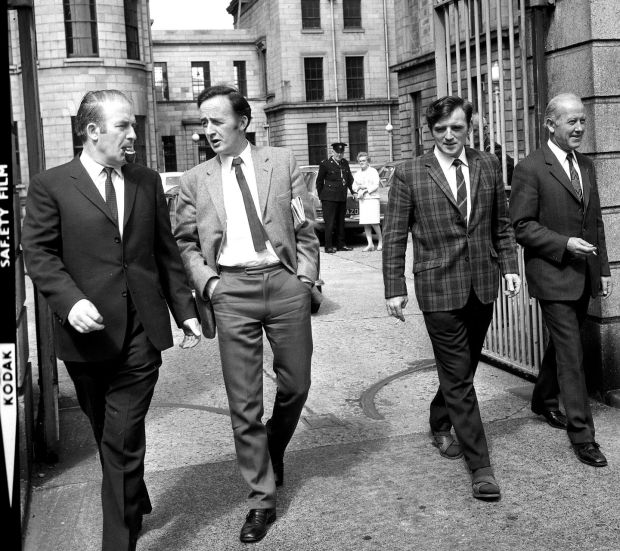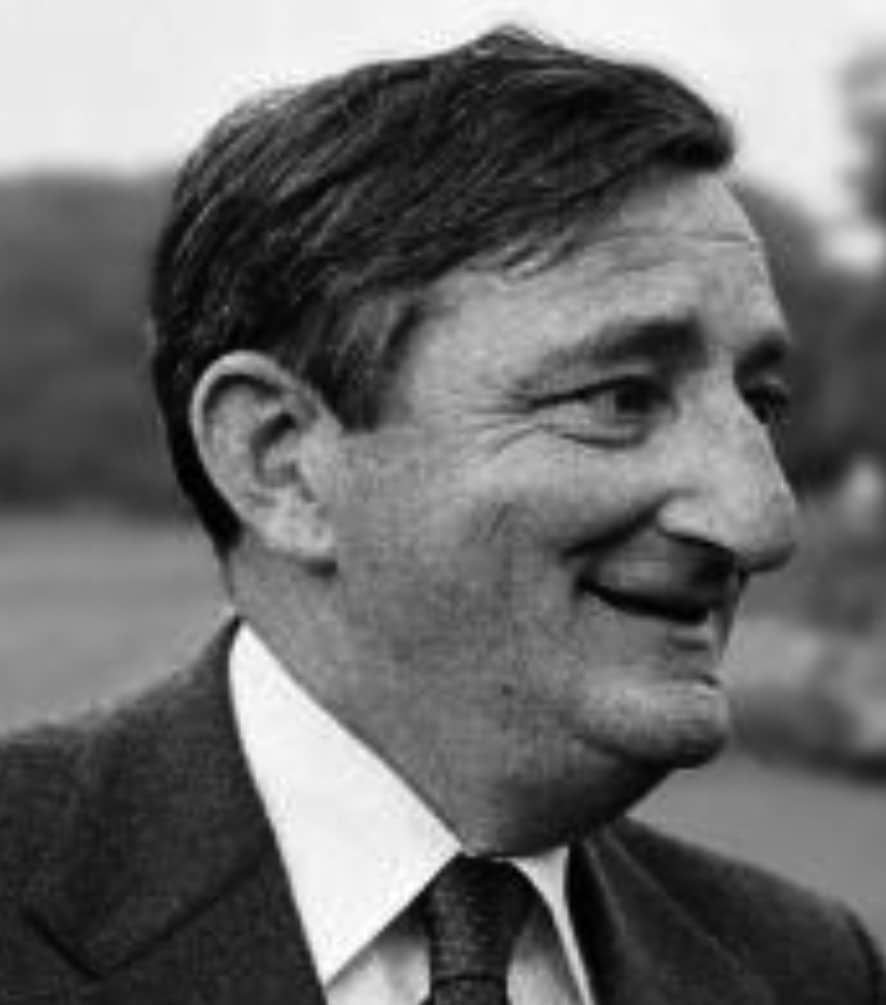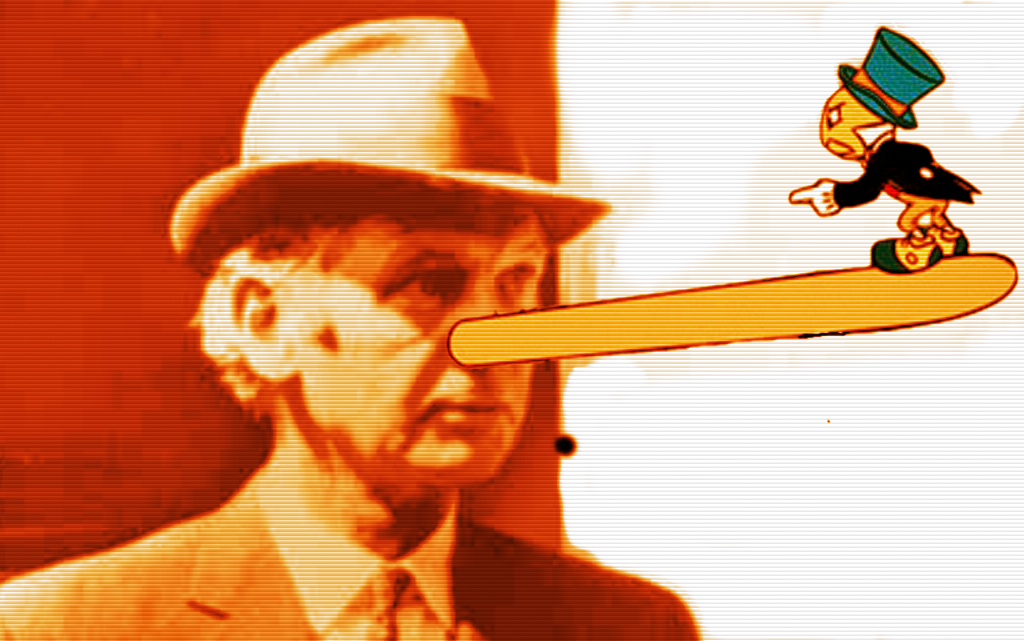By Sean Brennan.

The documentary titled ‘Gun Plot’ which was shown on RTE 1 last night was fascinating television. The RTE production team should be commended for this brilliant documentary on a very important and significant political and legal event which occurred 50 years ago but has not been properly addressed by the media up until now. These events in 1969 and 1970 shaped politics in Ireland forever and also had a huge impact on how the troubles in Northern Ireland unfolded after 1970.
What was very compelling was the fact that the documentary included the actual tape recordings of the second trial. This was the first time that an Irish court hearing was tape recorded. It was the judge, Mr. Justice Henchy, who ordered the hearings to be recorded. It is important to remember that the actual transcripts of the trial have been lost. The fact that the transcripts of the most important criminal trial in the history of the state are lost is incredible and some might even say sinister.
In summary, RTE have performed a great service to the citizens of this country and historians in that they have finally portrayed much of what really happened in 1969 and 1970 but was previously hidden, concerning the events that are commonly referred to as the Arms Crisis and the Arms Trials in 1970.
The documentary highlighted certain facts that suggest that Taoiseach Jack Lynch and Jim Gibbons, the then Minister for Defence, had a much greater knowledge and involvement in the plan to import arms for a possible distribution to Nationalists in Derry and Belfast in extreme circumstances than was ever admitted by Lynch and Gibbons.

The programme refers to the Army Directive of 6th February 1970. This directive was issued by the Minister for Defence, Jim Gibbons to the Army Chief of Staff, General Sean McEoin, in the presence of Colonel Michael Hefferon, the Head of Military Intelligence on 6th February 1970. The directive stated that the Minister had been instructed by the Government to direct the Chief of Staff to prepare the army for incursions into Northern Ireland and to make surplus arms available for distribution to Nationalist in Northern Ireland for defensive purposes.
The documentary also covers the events on 2nd April 1970 when it was feared that the Nationalist population in Ballymurphy in Belfast would be left defenceless against armed and arson attacks by loyalist mobs and B Specials and would be slaughtered. Arising out of the instructions which were given to the Minister for Defence which resulted in the Army Directive dated 6th February 1970 mentioned in the last paragraph, the Minister issued an order for the army to transport army weapons from an army barracks in Dublin to the army barracks in Dundalk so as to ensure that these weapons could be distributed in a short space of time to the defenceless Nationalists in Belfast in the event of them being subject to murderous assault and arsonist attacks. A total of 500 Irish Army rifles were transported in Irish Army lorries to Dundalk. This was exactly the type of situation which was envisaged in the Army Directive dated 6th February 1970. As it transpired, the expected loyalist attacks on the Nationalists in Ballymurphy did not materialise. Of the 500 rifles transported to Dundalk, only 350 were immediately returned to the barracks in Dublin. The remaining 150 rifles were kept in Dundalk pending the arrival of arms to be imported from the Continent. Unlike the army rifles which were sent to Dundalk, these imported arms could not be indentifiable and traced back to the Irish Army. The purpose of importing unidentifiable arms was to avoid or at least mitigate the possibility of damage to our diplomatic relations with the UK. After all it was part of the Government’s emergency plans to supply arms to UK citizens in Northern Ireland which was part of the UK. This could be regarded as an act of war. Secrecy was therefore critically important.

Only Jim Gibbons could have ordered the Army to deposit 150 rifles in Dundalk after the rest of the arms were returned to Dublin. This was hidden from the jury at the Arms Trials.
Only Jim Gibbons could have ordered the Army to deposit 150 rifles in Dundalk after the rest of the arms were returned to Dublin. This was hidden from the jury at the Arms Trials.
The documentary also dealt with the army training camp in Fort Dunree , Co. Donegal. Men from Derry were inducted into the FCA and trained in the use of arms in Fort Dunree. This training was called off temporarily when the media got word of it. It was obvious that the people who were being trained into the use of arms might be supplied with arms to use in extreme circumstances as otherwise the training would have been pointless.
It was obvious that the people who were being trained into the use of arms might be supplied with arms to use in extreme circumstances as otherwise the training would have been pointless.
The documentary also mentions the meeting in Mount Carmel Hospital in October 1969 when the Secretary of the Department of Justice, Peter Berry informed the Taoiseach Jack Lynch that Captain Kelly met Northerners in Bailieboro, Co Cavan to discuss the importation of arms. Berry had been briefed by the Special Branch about the Bailieboro meeting and regarded it of such importance that he asked Jack Lynch to come to visit him in Mount Carmel so that he could tell Lynch face to face about what he had been told about the Bailieboro meeting. Lynch always denied that Berry told him about the Bailieboro meeting and the discussions concerning the importation of arms.
The documentary was measured and overall it suggests that Captain Kelly and John Kelly believed that they were participants in a legal government sanctioned plan to import arms for the defence of Nationalist in Northern Ireland in the event of a doomsday scenario.

It is also reasonable to infer that Charles Haughey also believed that he was acting with the approval of the Government. Haughey had served as Minister for Justice and worked very closely with Peter Berry the Secretary in the Department of Justice. In fact Berry admitted that Haughey was by far the most capable of all of the thirteen Ministers for Justice that he served under. Haughey would have been very much aware of Berry’s deep paranoia of subversives. It is therefore just not credible that Haughey would have phoned Berry to ask him to collude in allowing an illegal importation of arms to be allowed through Dublin Airport, if Haughey had felt that the arms importation was an illegal plot.
It is therefore just not credible that Haughey would have phoned Berry to ask him to collude in allowing an illegal importation of arms to be allowed through Dublin Airport, if Haughey had felt that the arms importation was an illegal plot.
The documentary suggests that the defendants in the Arms Trials honestly believed that they were involved in a perfectly legal Government sanctioned covert arms importation plan. The jury acquitted all of those who were charged with a conspiracy to import arms illegally based on the fact that the jury also believed that the Minister for Defence, based on all of the evidence presented in court, had knowledge of and actually approved the arms importation. The fact that Gibbon’s name was included with Blaney and Haughey on the anonymous garda note which was given to Liam Cosgrave only serves to reinforce the idea that Gibbons was involved in the arms importation plan. It would also appear to be the case that Lynch was also aware of the plan. The Army Directive dated 6th February 1970 also proves that Lynch approved of the planned incursions into Northern Ireland and the plan to make surplus arms available to Northern Nationalists. This approval by Lynch for incursions into Northern Ireland and to supplying arms to Northern Nationalist was less than 13 weeks before he sacked Haughey and Blaney for doing what Lynch and the Government agreed to do on 6th February 1970.

If you had been relying on the media – until now – you would be forgiven for believing that Haughey & Co attempted to import arms to set up the Provisional IRA and that Jack Lynch and Jim Gibbons had known nothing about what was afoot. RTE has well and truly demolished that myth. But why has it taken over 50 years to really hammer this point home? And RTE really did hammer it home with an incisive and captivating broadcast that captured all the drama of the affair. Apparently 170,000 people are listening to the podcasts that are accompanying it. Those figures will surely rise after tonight.
After tonight, O’Malley may very well be the last person alive who doesn’t suspect Jack Lynch played games with the truth – to put it mildly.
Meanwhile, Des O’Malley is still refusing to address the many quetions he has left unanswered despite his boast that he is the ‘last man alive’ who knows what really happened. After tonight, O’Malley may very well be the last person alive who doesn’t suspect Jack Lynch played games with the truth – to put it mildly.

Sean Brennan is the author of two indepth articles on the Arms Crisis which can be found among Village’s extensive reporting of the controversey.
MORE ARTICLES ABOUT THE ARMS CRISIS ON THIS WEBSITE
OTHER STORIES ABOUT THE ARMS CRISIS AND RELATED EVENTS ON THIS WEBSITE:
The Official IRA planned the murders of journalists Ed Moloney and Vincent Browne.
[Expanded] British Intelligence must have known that Seán MacStíofáin was a Garda ‘informer’.
Captain James Kelly’s family phone was tapped
The long shadow of the Arms Crisis: more to Haughey’s question than meets the eye

Paudge Brennan, the forgotten man of the Arms Crisis
How the Irish Times got its biggest story of the last 50 years wrong.